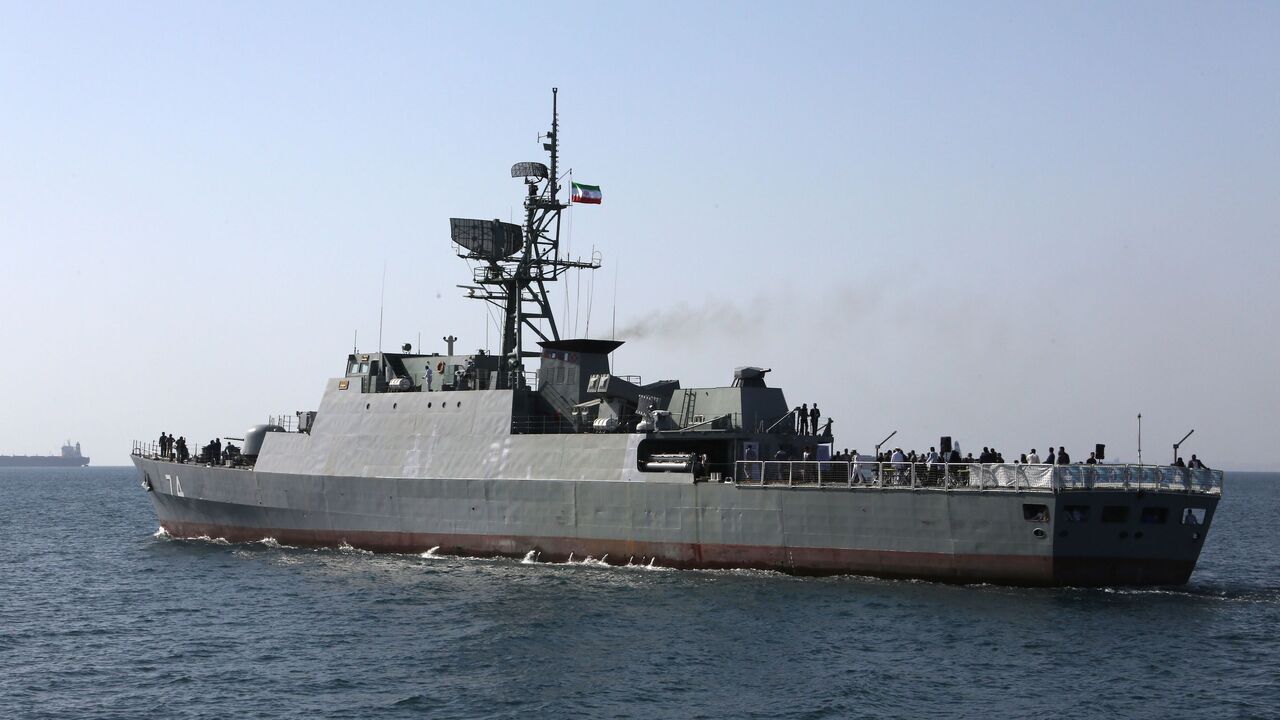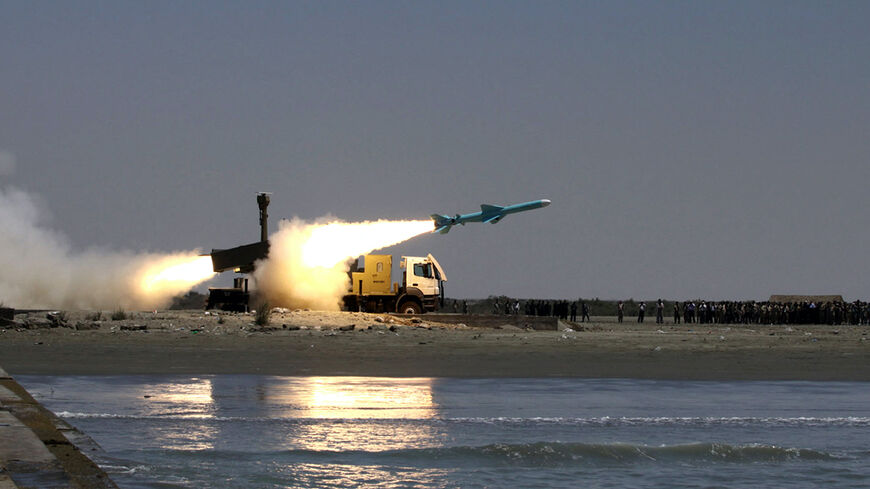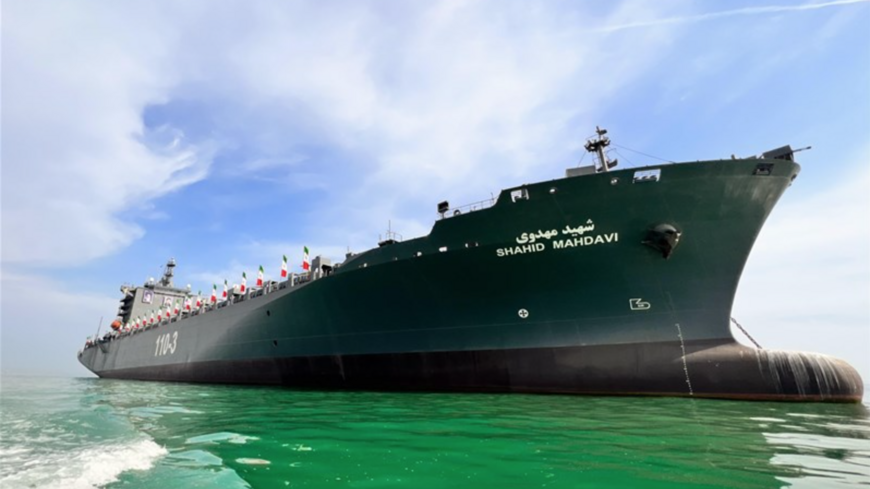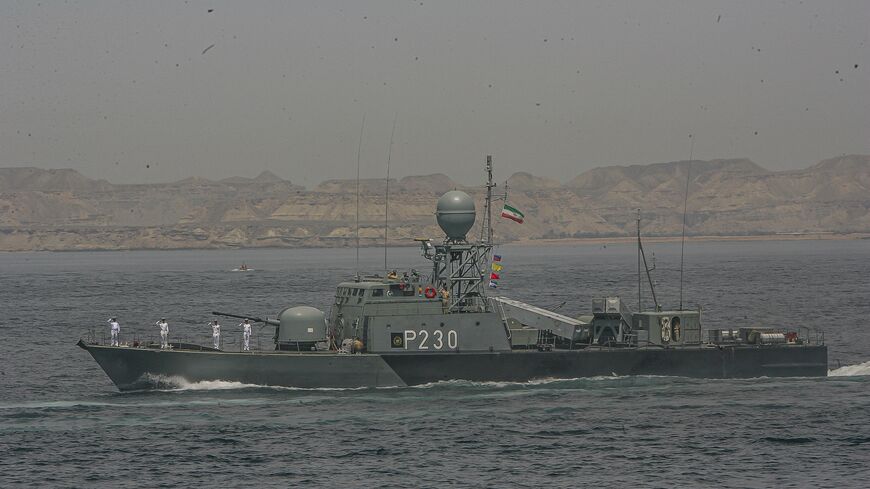Iran naval chief calls Israeli presence in UAE 'threat,' seeks Islamic army coalition
During the course of the Gaza war, Iran has been critical of some Islamic countries for their refusal to sever ties with Israel, and it's hoping that the war will shelve Arab-Israeli normalization plans.

TEHRAN — The Islamic Revolutionary Guard Corps' (IRGC) naval commander claimed on Tuesday that Israel is expanding its presence in the United Arab Emirates which he called "a threat" while proposing the formation of an integrated coalition army formed by Islamic countries to fight Israel.
"That is the only way to defeat the Zionist regime," said Rear Adm. Alireza Tangsiri of an Islamic military coalition, according to the semi-official ISNA news agency. His proposal fell within Iran's active diplomacy in the course of the Gaza war to galvanize Muslim support, in a campaign aimed at weakening Israel's international standing.
Tangsiri, in the meantime, renewed criticism against Muslim countries, which Iran accuses of failing to genuinely back the Palestinian struggle against Israel.
"The Zionists are dropping bombs on Muslims [in Gaza] with warplanes whose fuel is supplied by those very same Islamic countries," the hard-line commander claimed, describing the situation as "a mark of disgrace."
Iran's Supreme Leader Ayatollah Ali Khamenei, who holds the final say in Iran's foreign policy matters, has on more than one occasion rebuked officials in Arab and Islamic countries for maintaining ties with Israel, calling on them to cut off economic and diplomatic relations with Tel Aviv. During one speech in February, he even suggested that some Islamic countries were shipping arms to Israel.
Iranian authorities have also been hoping that the current war would forcibly end plans by Islamic countries — including its regional rival, Saudi Arabia — to normalize relations with Israel. If that were achieved, it would ease worries in Tehran about potential cooperation between its regional Arab foes and its sworn enemy, Israel, for any possible future strikes launched by the latter against the Islamic Republic.
The same worry was echoed by the navy chief, who particularly highlighted the case of the United Arab Emirates' relations with Israel. "The Zionists' presence in the UAE is a threat to us, and the threat in this case is not verbal, [but] rather practical," said Tangsiri. According to him, ties between Abu Dhabi and Tel Aviv are not economic. "They are pursuing security and, indeed, military projects, and this is a threat and should not be taking place," he said. The UAE normalized relations with Israel in 2020 by signining the Abraham Accords, making it the first Gulf country to do so.
Revenge is 'inevitable'
The Iranian commander underlined Tehran's official policy of "no rush" on how it is planning to treat a recent suspected Israeli strike on the Iranian consulate in Damascus that killed seven senior IRGC officers.
"We will definitely respond when time is ripe," he said, promising that Iran's revenge will be a "powerful slap" in Israel's face.
The Iranian supreme leader's top military adviser, Yahya Rahim Safavi — also a former IRGC commander — said last week that Israeli embassies were no longer safe, as Iran would carry out retaliation for the Damascus attack.
As the Gaza war ripple effects have hit the greater Middle East, Iran has been under fire from Western adversaries over its support to Yemen's Shiite Houthi rebels. The group's missile and drone attacks, some of them deadly, in retaliation for the Israeli war on Gaza have severely disrupted international shipping in the Red Sea.
To dodge international pressure and reprisals, Tehran has vehemently denied any such support but has not stopped singing the Houthis' praise.
"They are an independent force who do not take orders from us," the rear admiral said, claiming also that the Houthis "are manufacturing missiles and drones all on their own and have built their own naval force despite sanctions and the blockade."





